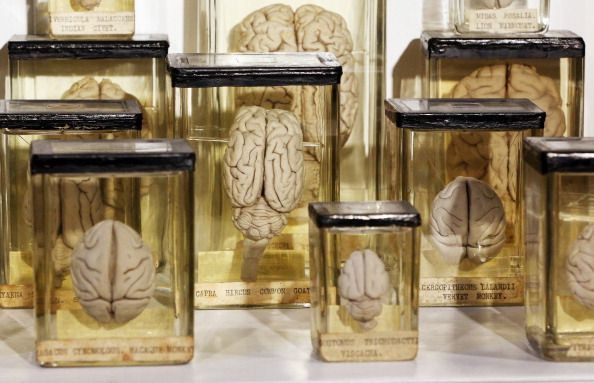Brain Disease Risk Lowered By Fat That Protects Against Parkinson’s And Alzheimer’s Disease

Could a little extra fat be beneficial to your overall health? The answer may surprise you. According to a new study from the University of California, Berkeley, it could actually help reduce the risk of developing some neurodegenerative diseases such as Huntington's, Parkinson's and Alzheimer's.
Researchers examined the mitochondria inside nematode worms to find a new pathway that could be harnessed to treat diseases like Huntington’s in humans. The team of scientists manipulated specific cells to mimic Huntington's disease, which resulted in the worms growing fat. It turns out that this fat was required to turn on genes that protect the cells from the neurodegenerative disease. The fat increase was due to the higher production of a specific type of lipid.
"We found that the worms and human cells were almost completely protected from the Huntington's aggregates when we turned on this response," said Andrew Dillin, the Thomas and Stacey Siebel Distinguished Chair in Stem Cell Research in UC Berkeley's Department of Molecular and Cell Biology and a Howard Hughes Medical Institute investigator. "If we could manipulate this lipid pathway, we could go after Huntington's disease, because in our studies the drugs were really beneficial. This is poised to take to the next level."
After finding that fat can help protect people from brain disease, researchers began treating worms and human cells with Huntington's disease using drugs that prevented the cell from sweeping up and storing the lipid, called ceramide. This resulted in the same protective effect against neurodegenerative diseases.
Over the past several years, other studies have also produced scientific evidence that mitochondrial dysfunctions are associated with aging and age-onset protein misfolding diseases, such as Alzheimer's, Parkinson's and Huntington's.
Source: Kim HE, Grant AR, Simic MS, Kohnz RA, Nomura DK, Durieux J, et al. “Can some types of fat protect us from brain disease? A newly discovered stress response pathway relies on fat molecules to mediate cellular health.” ScienceDaily. 2016.
Read more:
Thinking On Your Feet: Dancing Wards Off Neurodegenerative Disease By Rewiring The Brain
Crohn’s Disease System Update: Inflammatory Bowel Disease Affects Brain Function
Published by Medicaldaily.com



























